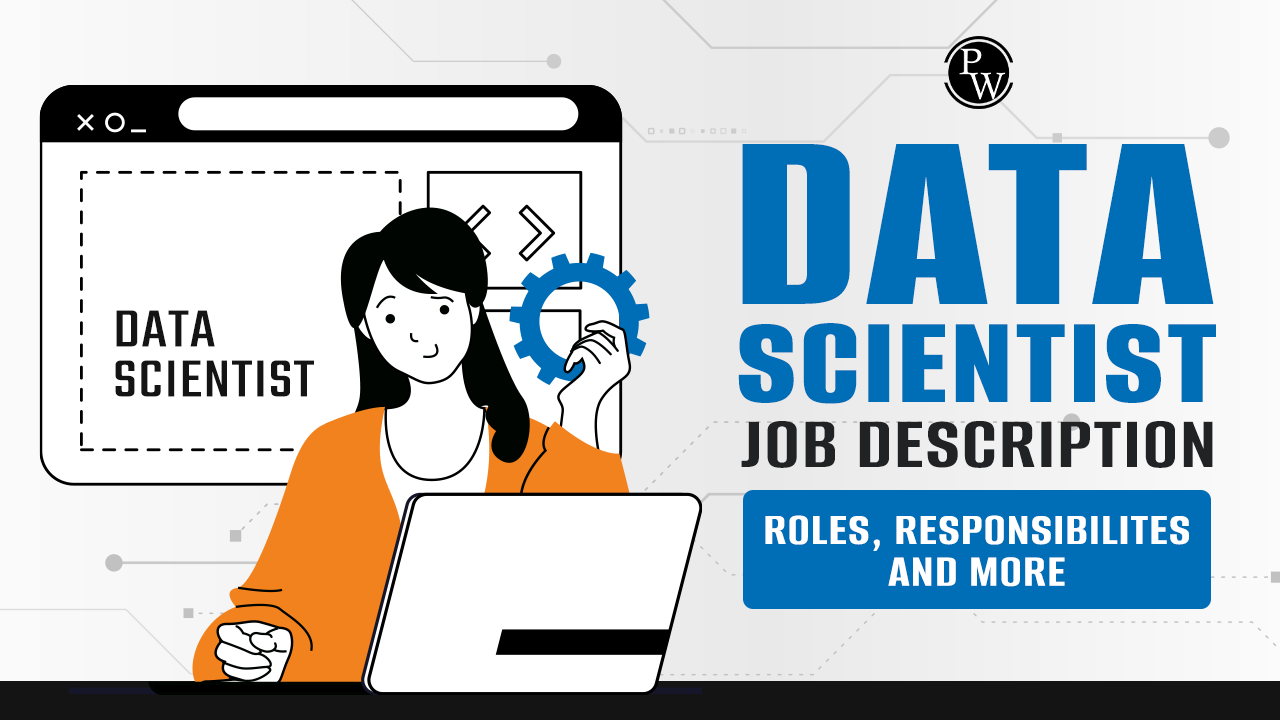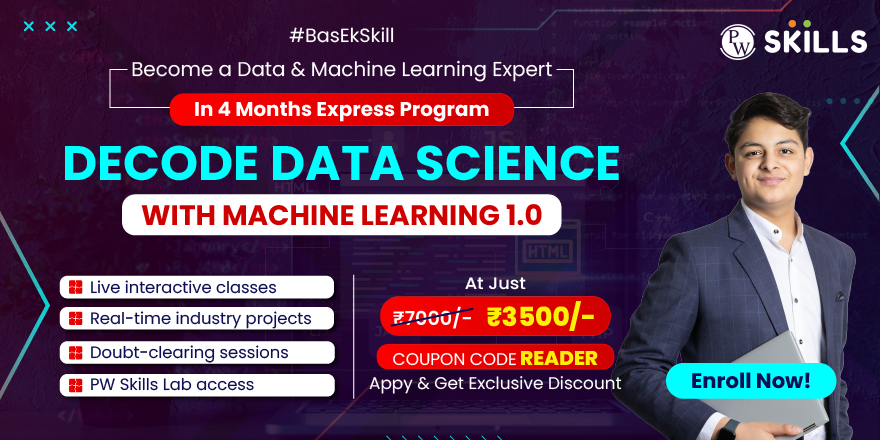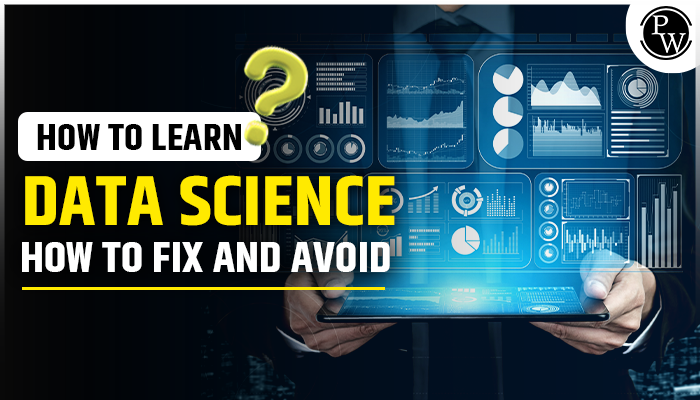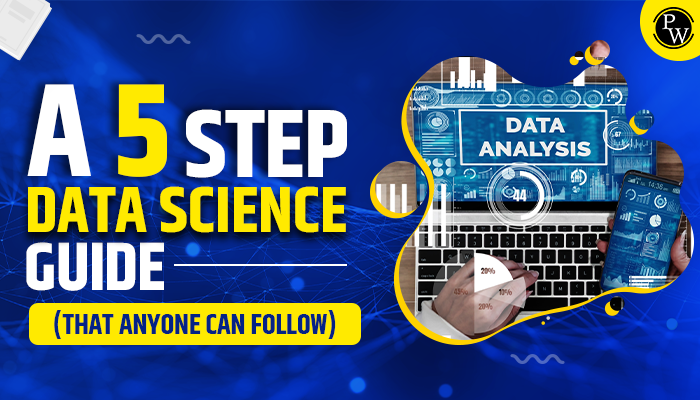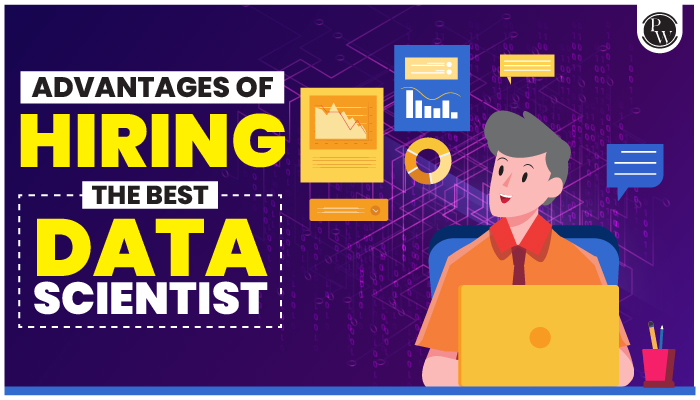The world of data has seen a Big Data era, where organizations handle massive amounts of information, making storage a big challenge until 2010. With frameworks like Hadoop coming into play to address storage issues, the focus has shifted to processing data. This is where data scientist roles and responsibilities come in. The field of Data Science has grown in various ways, and it’s essential to prepare for the future by learning what it is and how we can make it valuable.
Now, let’s talk about who a data scientist is. According to an Economist Special Report, a data scientist is someone who combines skills like software programming, statistics, and storytelling to unearth valuable insights from vast amounts of data.
But there are still many questions to address. What exactly does a data scientist do? What are their responsibilities? How are they different from data analysts and data engineers? Let’s explore data scientist roles and responsibilities in this blog to get a detailed understanding.
Before we start, you can hop on to Physics Wallah’s Full Stack Data Science program to know if your skills match data scientist roles and responsibilities.
What is a Data Scientist?
A data scientist is like a detective for numbers and information. They collect, study, and understand data to help a company make smart decisions. This job mixes skills from different areas like math, science, statistics, and computer programming. They use fancy tools like machine learning to make predictions and follow scientific rules.
In their work, data scientists handle a lot of information. They create and test ideas, make conclusions, and look at things like what customers do, market trends, financial risks, online security, stock trading, equipment maintenance, and even medical conditions.
Businesses rely on data scientists to dig into data and figure out things like what customers might do next, find new ways to make money, catch fraud, and solve other business problems. They also help out in healthcare, schools, government, sports, and other organizations.
The job title “data scientist” started in 2008, and it quickly became known as one of the coolest jobs in the 21st century. The need for data science skills has grown a lot because companies want to make sense of all the big data they have and use AI and machine learning to do new kinds of analysis.
Types of Data Scientists
Data scientists have diverse career opportunities and can work in various fields, such as:
- Finance: In the financial sector, data scientists analyze and interpret financial data to make informed decisions, manage risks, and improve financial strategies.
- Academia: Data scientists in academia may conduct research, analyze educational data, and develop data-driven solutions to enhance teaching and learning.
- Scientific Research: They play a crucial role in scientific research by processing and interpreting data from experiments, simulations, and observations.
- Health: Data scientists in healthcare use data to improve patient outcomes, enhance medical research, and optimize healthcare operations.
- Retail: In the retail industry, data scientists analyze customer behaviour and sales data to make recommendations, enhance marketing strategies, and manage inventory.
- Information Technology: They work on data-related projects within the IT sector, such as improving data security, optimizing system performance, and handling big data.
- Government: Government data scientists use data analysis to inform policy decisions, address societal challenges, and improve public services.
- E-commerce: Data scientists in e-commerce focus on understanding customer preferences, optimizing user experiences, and improving sales and recommendations.
Roles and Responsibilities of a Data Scientist
The data scientist roles and responsibilities involve various important areas:
- Management: Data Scientists play a crucial role in building a strong foundation of technical abilities within the Data and Analytics field. They support data analytics projects and help with future planning.
- Analytics: Data Scientists take on a scientific role where they create and assess advanced statistical models and techniques to address complex business issues. This includes developing models for tasks like predictions, classification, pattern analysis, and simulations.
- Strategy/Design: Data Scientists are vital in developing innovative strategies to understand consumer trends and find solutions to challenging business problems. This can involve optimizing product fulfilment and overall profit.
- Collaboration: Data Scientists work closely with other data experts to share findings and challenges with relevant stakeholders. This collaboration enhances decision-making and improves overall business performance.
- Knowledge: Data Scientists are responsible for exploring new technologies and tools to generate innovative data-driven insights for the business. They also take the initiative to assess and implement new data science methods and present these to senior management for approval.
- Other Duties: In addition to these roles, Data Scientists may also perform other tasks as assigned by senior data experts, the Head of Data Science, the Chief Data Officer, or their employer.
Also check: Top 12 Data Science Certifications That You Can Consider
How to Start Your Journey as a Data Scientist?
To become a data scientist, you need some formal education and a set of specific skills. Here’s a step-by-step guide:
1. Earn a Data Science Degree/Program
Having a degree/program in data science, statistics, or computer science can impress potential employers. If you already have a bachelor’s degree, consider pursuing a master’s in data science, which allows you to dive deeper into topics like statistics, machine learning, and research.
2. Develop Relevant Skills
To excel in this field, you should hone your skills. Focus on these areas:
- Programming Languages: Learn languages like Python, R, SQL, and SAS, as they are crucial for data analysis.
- Data Visualization: Being able to create charts and graphs using tools like Tableau, PowerBI, and Excel is vital for presenting your findings.
- Machine Learning: Explore the basics of machine learning to enhance your ability to predict future outcomes.
- Big Data: Familiarize yourself with big data processing tools like Hadoop and Apache Spark, as some employers prefer candidates with experience in handling large datasets.
- Communication: Effective communication is essential. You must be able to convey your findings clearly, both verbally and in writing.
3. Start with an Entry-Level Job
Begin your career by securing an entry-level position related to data, such as a data analyst, business intelligence analyst, statistician, or data engineer. These roles will provide valuable experience and allow you to work your way up to becoming a data scientist as you gain more knowledge and skills.
Best Degrees/Programs for Data Scientists
The best degrees for data scientist roles and responsibilities usually involve advanced education, like a Master of Science in Data Science. Data science professionals often start with a background in computer science or math and then pursue a master’s degree in fields like data science, data analytics, or related areas.
In these master’s programs, students learn important skills such as predictive analytics, statistical modelling, handling big data, data visualization, and how to use data for decision-making. For example, Northeastern University offers a Master of Science in Data Science program that combines computer science and engineering courses to provide a comprehensive education on processing, analyzing, and drawing insights from data.
On the other hand, some individuals might prefer a degree in data analytics. This type of program teaches students how to use statistics, analytics technology, and business intelligence to solve specific problems using data. Students learn how to tackle challenges related to uncertain data and integrate information from different sources.
Northeastern University also offers a Master of Professional Studies in Analytics program, which helps students apply analytical principles to real projects with organizations. Graduates develop a strong foundation in analytics and gain practical experience through real-world projects and specialized technical skills. This program focuses on hands-on learning and prepares students for various industry applications.
Working Hours of a Data Scientist
The hours you work depend on the company you join. Typically, most offices have their core working hours from 8 AM to 6 PM, Monday to Friday. But sometimes, especially during short-term projects, you might have to work outside of these hours, including on weekends. In some places, you may get the option to work remotely or have a flexible schedule.
What to Expect after a Data Science Program?
- Data science is a team effort. People under data scientist roles and responsibilities like to share their methods and ideas, so be ready to share your own with your team.
- You can find data science jobs all over the UK in different industries. There are also opportunities to work in other countries.
- Most data science jobs are in offices, and you’ll spend a lot of time at your desk. It’s important to learn about the business you work for to help solve problems.
- Unfortunately, there are not many women in data science right now, but groups like Women in Tech are working to change that.
Qualifications Required to be a Data Scientist
To be a data scientist, you usually need a degree in a subject like computer science, math, or a science-related field. Some good degrees to have include computer science, data science, engineering, math, physics, and statistics.
You’ll also need to know some programming languages like R, Python, SQL, C, or Java, and be good at designing databases and coding. There are special training programs for data scientist roles and responsibilities, but they can be competitive to get into. Some may accept graduates from any field, while others want specific degrees.
Getting a master’s or PhD in subjects like big data, business analytics, or data science can be really helpful. Some jobs might require these degrees.
You can also start a data science career through an apprenticeship, which is a program where you learn and work at the same time.
Skills Required to Become a Data Scientist
To be a good data scientist, you need to have:
- Strong problem-solving skills.
- Knowledge of database tools like Apache Hadoop, SQL, and SAS.
- Good communication skills to explain your work to non-experts.
- Listening skills to understand what the business needs.
- Motivation and the ability to try new ideas.
- Good time management and organization.
- The ability to meet deadlines.
- Great attention to detail.
- Teamwork and the ability to share ideas and find solutions together.
Data Scientist Work Experience
You can gain experience through internships, especially at bigger companies in finance, retail, and travel. Smaller businesses might not advertise internships, so you may need to ask them directly.
Online data science competitions on websites like Kaggle and Topcoder are also a way to show your skills to potential employers. Look for events and conferences to attend for networking and learning opportunities.
Data Scientist Career Path
A job in data science is currently seen as one of the best careers. Many companies in various industries need data scientists to help them make sense of big data. The demand for skilled data scientists who can bridge the gap between business and technology is growing rapidly.
Becoming a data scientist doesn’t follow a strict path because it’s a relatively new field. People with different backgrounds like math, statistics, computer science, or economics find their way into data science.
There are different career options in data science. Since data science covers various fields, you can explore and move into different roles.
Here are the main job titles for data scientist roles and responsibilities:
- Data Analyst
- Entry-level Data Scientist
- Associate Data Scientist
- Senior Data Scientist
- Product Manager
- Lead Data Scientist
- Director/VP/SVP
Also check: Data Science for Beginners
Inspiring Data Scientists
Let’s take a look at some data scientists who can inspire you:
- Hilary Mason: She co-founded Fast Forward Labs, a machine learning company now owned by Cloudera, a data science company. Hilary works with data to answer questions about things like web mining and understanding how people interact on social media.
- Nate Silver: He’s a well-known data scientist and statistician. Nate founded FiveThirtyEight, a website that uses statistics to tell interesting stories about elections, politics, sports, science, and lifestyle. He uses a lot of public data to make predictions, especially about who will win elections in the U.S., and he’s known for being very accurate.
- Daryl Morey: He’s the general manager of the Houston Rockets, a basketball team in the U.S. Daryl got his job as GM because of his bachelor’s degree in computer science and his M.B.A. from M.I.T.
How to Become a Data Scientist Today?
A career in data science is full of promise and offers various job opportunities in many different fields. Whether it’s finance, retail, e-commerce, or even government, universities, and more, the demand for data scientists is strong and extends to various sectors. We’ve covered the data scientist roles and responsibilities and the wide range of job opportunities it offers in various industries and locations.
If you’re interested in a career in data science, Physics Wallah’s Full Stack Data Science program is an excellent choice to gain practical skills and accelerate your career in this field. Don’t miss the chance to explore the world of data science and unlock new career possibilities!
FAQs
Is a background in computer science necessary to become a data scientist?
While a background in computer science can be advantageous, it's not always necessary to become a data scientist. Data scientists come from diverse educational backgrounds, including mathematics, statistics, economics, and more.
Do data scientists only work with big companies?
Data scientists are employed by companies of all sizes, not just large corporations. Small and medium-sized businesses, startups, and even non-profit organizations often hire data scientists to gain insights from their data.
What tools and software do data scientists use?
Data scientists use a variety of tools and software, including programming languages like Python and R, data visualization tools like Tableau, and big data processing tools like Hadoop and Apache Spark. The specific tools may vary depending on the job and industry.
Is data science a suitable career change for mid-career professionals?
Yes, data science can be a viable career change for mid-career professionals. Many data scientists transition from other fields, bringing their domain expertise, analytical skills, and problem-solving abilities to the role.
Are there continuing education opportunities for data scientists?
Data science is an evolving field, and there are plenty of opportunities for continuing education. Data scientists can attend workshops, online courses, and conferences to stay updated with the latest trends and technologies in the field.

